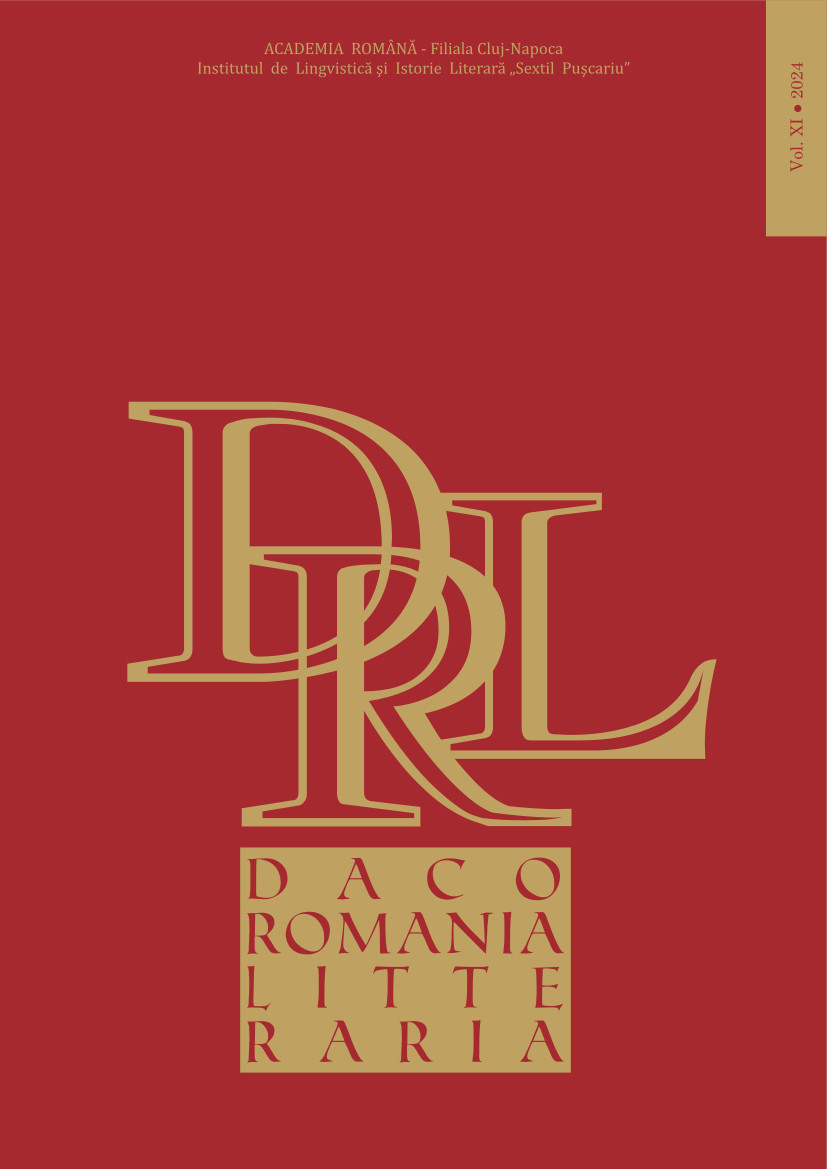La liaison dangereuse entre le sous-genre autofictionnel et l’identité de genre en Roumanie post-communiste : dès son origine française jusqu’à la narration de soi queer-féministe dans le cadre de la globalisation
Dangerous Liaisons between the Autofictional Subgenre and Gender Identity in Post-Communist Romania: From the French Origins of Autofiction to Queer-Feminist Self-Narration in the Context of Globalization
Author(s): Teona FarmatuSubject(s): Language and Literature Studies, Literary Texts, Fiction, Studies of Literature, Novel, Romanian Literature, Philology, Theory of Literature, Sociology of Literature
Published by: Academia Română, Filiala Cluj-Napoca
Keywords: autofiction; post-communist Romania; queer; feminism; misogyny;
Summary/Abstract: Considering the conventional and supposedly objective perspective that gender’s authors do not influence writing or that “literature has no gender”, my paper seeks to challenge this preconception. The aim of my study is to explore how the subgenre of autofiction is intricately influenced by gender. Deeply intertwined with themes of identity and individuality, Romanian autofiction, which has been significantly shaped by its French counterpart, has developed within a framework of masculine and patriarchal thought and expression. My primary argument is that the pervasive “masculine dominance” (as Pierre Bourdieu called it) within the Romanian literary landscape has both supported and generated self-fictional narratives that reflect misogyny and sexism from various angles, thereby contributing to the emergence, and establishment of autofiction. Additionally, the ethical implications of self-fiction – which have sparked controversies in both France and Romania – extend beyond the obsolete relationship between facts and fiction; particularly in Romania, it is highlighted how male authors have crafted autofiction while perpetuating dominance and authority, often in regard to women. Beginning with the import of autofiction in post-communist Romania, I critically explore how this subgenre has been received, showing up the paradoxes and limitations of local theoretical discourse on autofiction, which tends to overlook the poststructuralist origins of what seems to be an emancipatory form. Subsequently, I delve into the traditional core of Romanian autofiction by examining its development and the reasons why female authors ultimately dismiss and critique this regulated subgenre, by involving in which could be conceptualise as “self-writing”. Finally, I examine the first Romanian queer-feminist self-writing – Dezrădăcinare [Uprooting] by Sașa Zare.
Journal: Dacoromania litteraria
- Issue Year: 11/2024
- Issue No: 1
- Page Range: 162-192
- Page Count: 31
- Language: French

